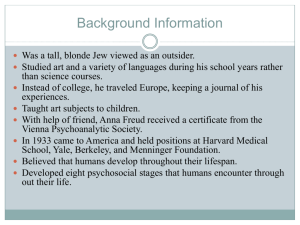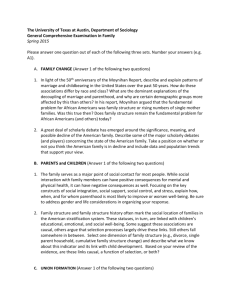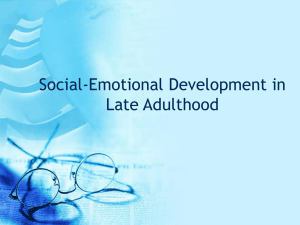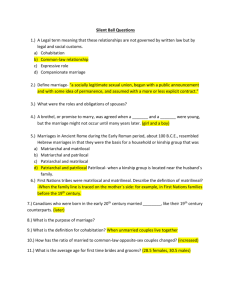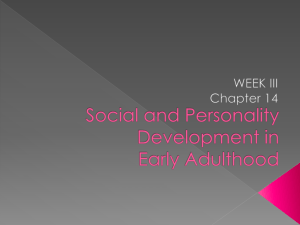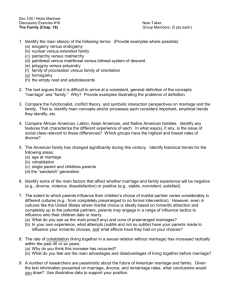Exam Review Questions
advertisement
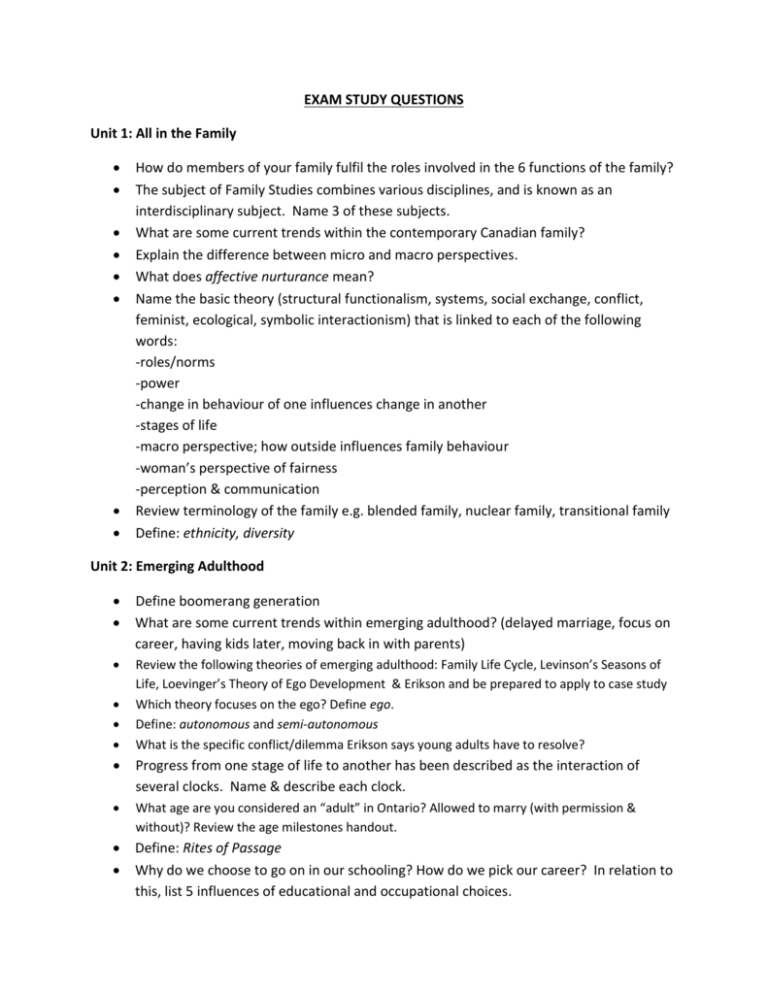
EXAM STUDY QUESTIONS Unit 1: All in the Family How do members of your family fulfil the roles involved in the 6 functions of the family? The subject of Family Studies combines various disciplines, and is known as an interdisciplinary subject. Name 3 of these subjects. What are some current trends within the contemporary Canadian family? Explain the difference between micro and macro perspectives. What does affective nurturance mean? Name the basic theory (structural functionalism, systems, social exchange, conflict, feminist, ecological, symbolic interactionism) that is linked to each of the following words: -roles/norms -power -change in behaviour of one influences change in another -stages of life -macro perspective; how outside influences family behaviour -woman’s perspective of fairness -perception & communication Review terminology of the family e.g. blended family, nuclear family, transitional family Define: ethnicity, diversity Unit 2: Emerging Adulthood Define boomerang generation What are some current trends within emerging adulthood? (delayed marriage, focus on career, having kids later, moving back in with parents) Review the following theories of emerging adulthood: Family Life Cycle, Levinson’s Seasons of Life, Loevinger’s Theory of Ego Development & Erikson and be prepared to apply to case study Which theory focuses on the ego? Define ego. Define: autonomous and semi-autonomous What is the specific conflict/dilemma Erikson says young adults have to resolve? Progress from one stage of life to another has been described as the interaction of several clocks. Name & describe each clock. What age are you considered an “adult” in Ontario? Allowed to marry (with permission & without)? Review the age milestones handout. Define: Rites of Passage Why do we choose to go on in our schooling? How do we pick our career? In relation to this, list 5 influences of educational and occupational choices. Unit 3: Couples Name & describe all of the mate selection theories (how we end up with the mate we do) e.g. exchange, ideal mate… Assume you are a marriage counsellor. Based on the Nine Psychological Tasks for a Good Marriage (in text), give advice to a couple who is experiencing trouble in their marriage In class, we learned strategies for resolving conflict. Describe these strategies (accommodation, compromise etc.) What is cohabitation? What province has the highest rate of cohabitation? Why? According to research, do couples who live together before marriage tend have more successful marriages than those who don’t? Review note on marriage in history. What is a bride price? dowry? What year was the divorce act enacted? What year was it changed so that spouses did not have to prove fault? Review the effects of divorce on the various age groups Define limerance What are the 3 parts of Sternberg’s love triangle? A friend has just started dating someone you don’t know… a) Give her tips for safe dating b) Let her know the warning signs of an abusive partner Unit 4: Parent-Child Relationships List and describe Baumrind’s 3 main parenting styles? What are 3 joys and 3 challenges of having children What is the difference between childless and childfree? How did Piaget, Mustard, Harlow, Erikson & Spitz contribute to theories of child development? What Government programs have been initiated in Ontario to make it easier for working families? How do these policies differ from those in Quebec? Teenage parenthood affects 3 groups of people: the teenage parent, child & parents of teenager. Describe how each group is affected by this event. Unit 5: Later Life What are the 3 contemporary theories of aging? Describe. (stability template, random change, orderly change) As an expert on grief, describe ways you can support a grieving friend List 3 do’s and 3 don’ts for helping others grieve As learned in class, what are the 4 T’s of grief? Describe each. Provide an example for each of the four types of generativity. What is the difference between generativity and stagnation? List 3 challenges and 3 triumphs of later life.
